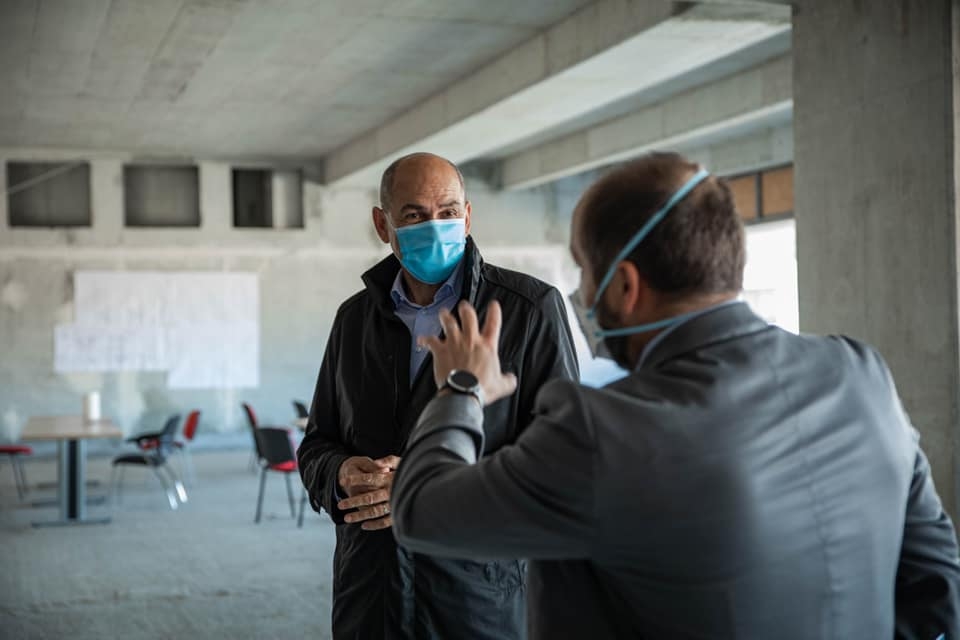The number of patients with covid-19 is increasing in hospitals, but they currently have enough beds, said the director of the Golnik University Clinic for Lung Diseases and Allergy, Aleš Rozman. “Healthcare professionals will not give up,” he stressed, adding, “We will not allow people to stand in front of hospitals, in a lack of oxygen, because there are no empty beds.”
Meanwhile, Prime Minister Janez Janša remembered of as many as 1,700 m2 of unfinished hospital capacities at the University Medical Center Ljubljana. In less than 10 days, a quick adaptation could provide a large number of care places for covid patients, Janša suggested.
Currently, the number of people infected with coronavirus in Slovenia doubles every six or seven days, which is also felt in hospitals. “If we used about 400 hospital beds this weekend, we will use about 1,000 at the end of next week,” said Aleš Rozman, director of the University Clinic for Lung Diseases and Allergy Golnik.
Hospitals strive to provide as much space as possible. Therefore, they dismiss non-urgent patients and do not admit new ones. Conventional wards also need to be architecturally adapted to be suitable for treating patients with covid-19. They must establish safe routes, filters for staff, logistics for the introduction of food and medicine and the removal of contaminated material, Rozman said.
We’re running out of space
“We no longer wonder which hospital should take whom. Even those who were not skilled in working with viral pneumonia or working in the intensive care unit came to terms and learned,” says Rozman, stressing that patients will not be left in front of hospitals.
At this point, they are not yet at a turning point when patients could not be admitted. A republican coordination and dispatch center have also been set up, where doctors can get information about vacant beds. “The patient can also be directed outside the region,” he said. Hospitals also currently have sufficient protective equipment.
Regarding the changed method of testing for the new coronavirus, Rozman explained that the number of swabs will be limited in environments where there are too many swabs and they represent too much of a burden for the system.
As he explained, testing priority will be given to patients in need of hospital treatment. Information about the infection is important for them so that the infection does not spread within hospitals. Employees in nursing homes and health care, as well as those who have a lot of contacts due to their work, will also be tested.
“Where they can test everyone, let them test everyone,” he added.
He again called on the residents to adhere to preventive measures. According to Rozman, the awareness of individuals about the need to comply with the measures is the most important measure to prevent the spread of the epidemic. “The government can shut down whatever it wants if people don’t stick to it, there won’t be a real effect,” he added.

